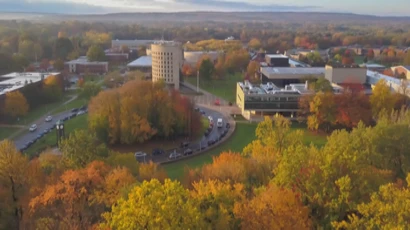Many of the mindfulness practices on this page are presented with the permission of the Center for Mindful Self-Compassion. They are the work of Chris Germer & Kristin Neff, Co-Developers of the Mindful Self-Compassion Program. It is with gratitude for them, that we share these practices with you.
Research is clear: Happiness, resilience, connection, and kindness are skills that can be taught and developed over time—with practice.
That’s why UC Berkeley’s Greater Good Science Center, in collaboration with HopeLab, launched Greater Good in Action. Synthesizing hundreds of scientific studies, Greater Good in Action collects the best research-based methods for a happier, more meaningful life—and puts them at your fingertips in a format that's easy to navigate and digest.
Mindful Self-Compassion Practices
Self-Compassion Break
The 3 components of self-compassion are a powerful recipe for regulating difficult emotions. The first component – mindfulness – helps us disentangle from what’s bothering us. The second component – common humanity – is an antidote to the loneliness that may come with social distancing. When we recall that we’re not alone no matter what we’re going through, things become more bearable. The third component of self-compassion – self-kindness – is an antidote to fear. Kindness regulates fear through connection and warmth, similar to what we might experience with a dear friend.
SELF-COMPASSION BREAK (KRISTIN NEFF)
Giving and Receiving Compassion
Although we may be physically distanced from others, we don’t need to emotionally distance ourselves. Connection feels good. We can stay in compassionate connection with others by following our breath – breathing compassion in for ourselves and out for others. This can be practiced at home or with others, on the cushion or in caregiving settings.
Being with Difficult Emotions
Isolation is not natural for human beings. Just being alone with ourselves for an extended period of time usually brings up challenging emotions. Labeling what we’re feeling while we’re feeling it calms the body, finding the emotion in the body anchors the experience, and responding to ourselves with compassion is the connection we’ve probably needed all along.
BEING WITH DIFFICULT EMOTIONS (FORMERLY SOFTEN, SOOTHE, ALLOW) (KRISTIN NEFF)
Affectionate Breathing
Another helpful practice for helping to ground ourselves when we feel overwhelmed is tuning in to the soothing rhythm of the breath. We can allow ourselves to be caressed by the gentle internal rocking motion of the breath in a way that is calming and soothing.
Compassionate Body Scan
When we find ourselves scanning for signs of trouble in our own bodies, the body begins to feel like an alien and we need to befriend it. We also need to remain friends with our bodies when they are stricken with emotional and physical stress because the body is doing the best it can and it needs our support. The Compassionate Body Scan is a way to become more intimate and comfortable with our bodies no matter what condition we may be in.
COMPASSIONATE BODY SCAN (KRISTIN NEFF)
Compassion for Self and Others
Practicing kindness is one of the most direct routes to happiness: Research suggests that kind people tend to be more satisfied with their relationships and with their lives in general. We all have a natural capacity for kindness, but sometimes we don’t take steps to nurture and express this capacity as much as we could.
Loving-Kindness for a Loved One
Loving-kindness meditation (sometimes called “metta” meditation) is a great way to cultivate our propensity for kindness. It involves mentally sending goodwill, kindness, and warmth towards others by silently repeating a series of mantras.
Loving-Kindness for Ourselves
We often judge ourselves more harshly than we judge others, beating ourselves up over our faults, flaws, and shortcomings. That makes us feel isolated, unhappy, and even more stressed; it may even make us try to feel better about ourselves by denigrating other people. Self-compassion reduces painful feelings of shame and self-criticism that can compromise mental health and well-being and stand in the way of personal growth.
LOVING-KINDNESS FOR OURSELVES (CHRIS GERMER)

